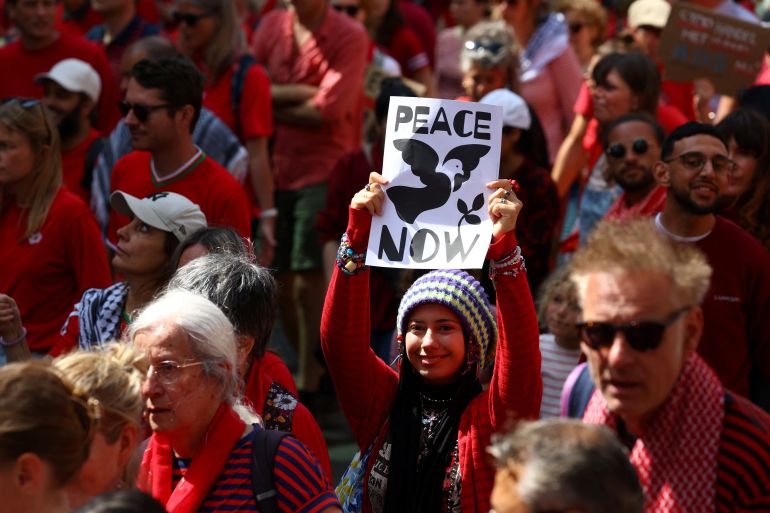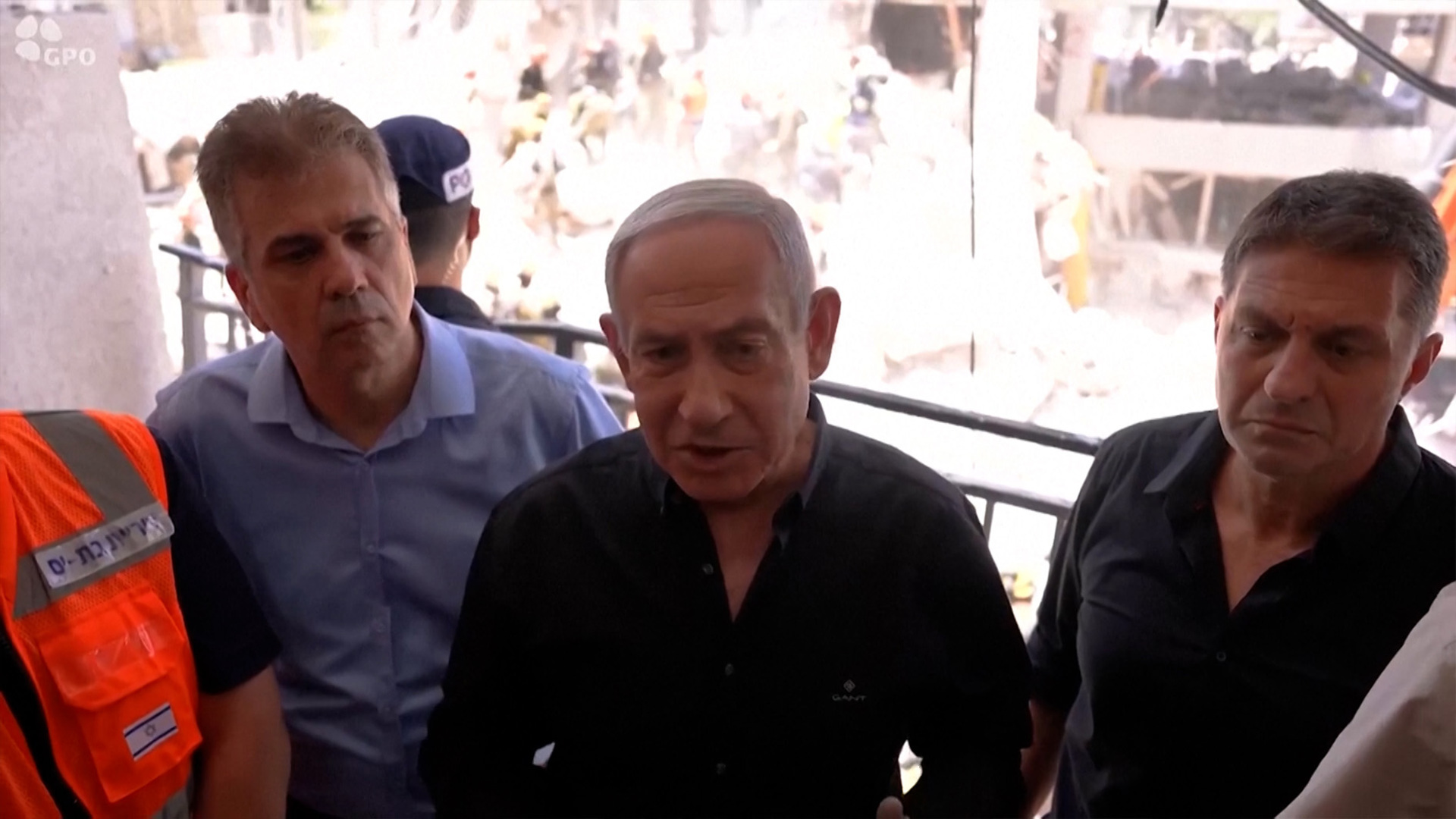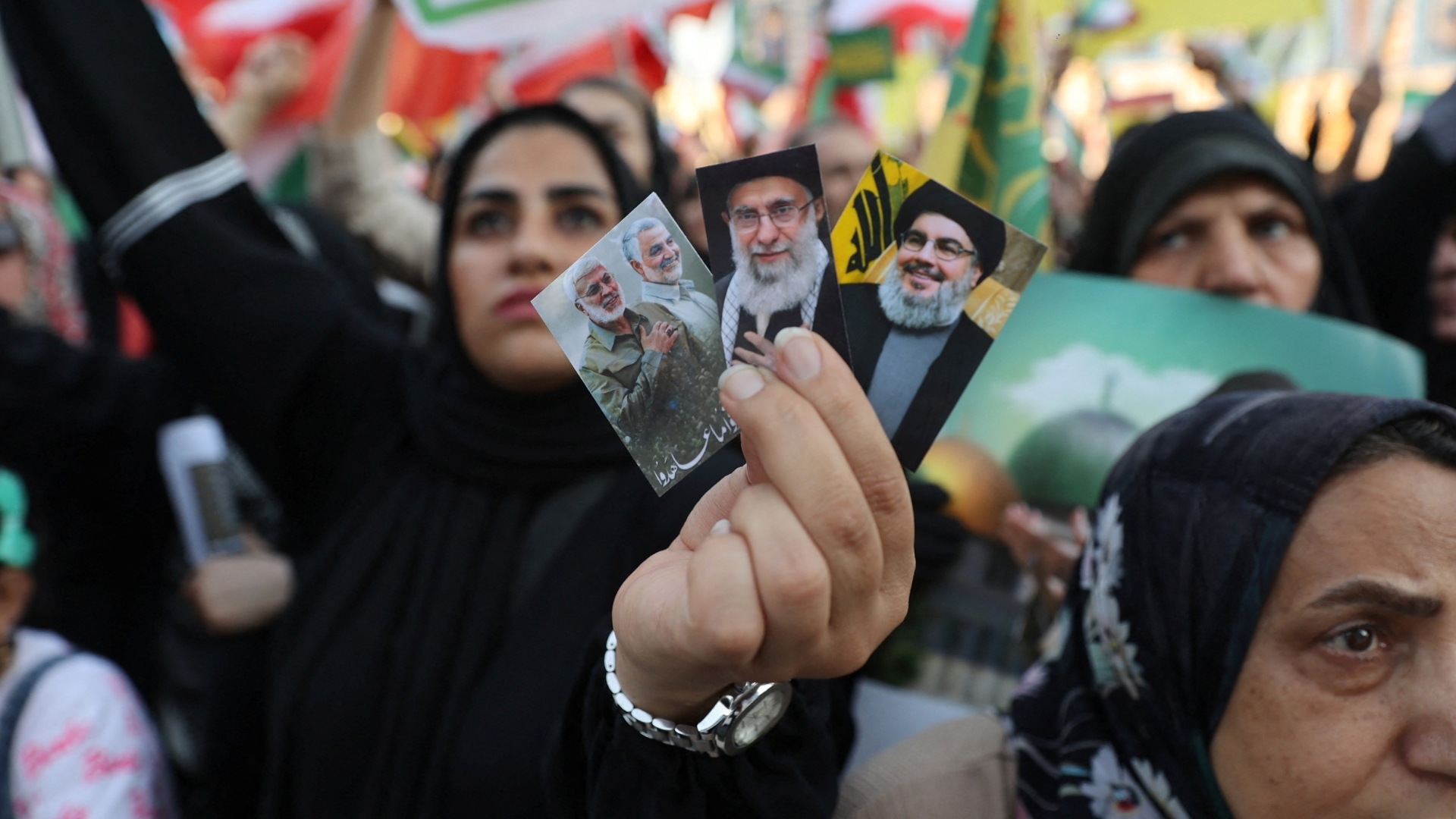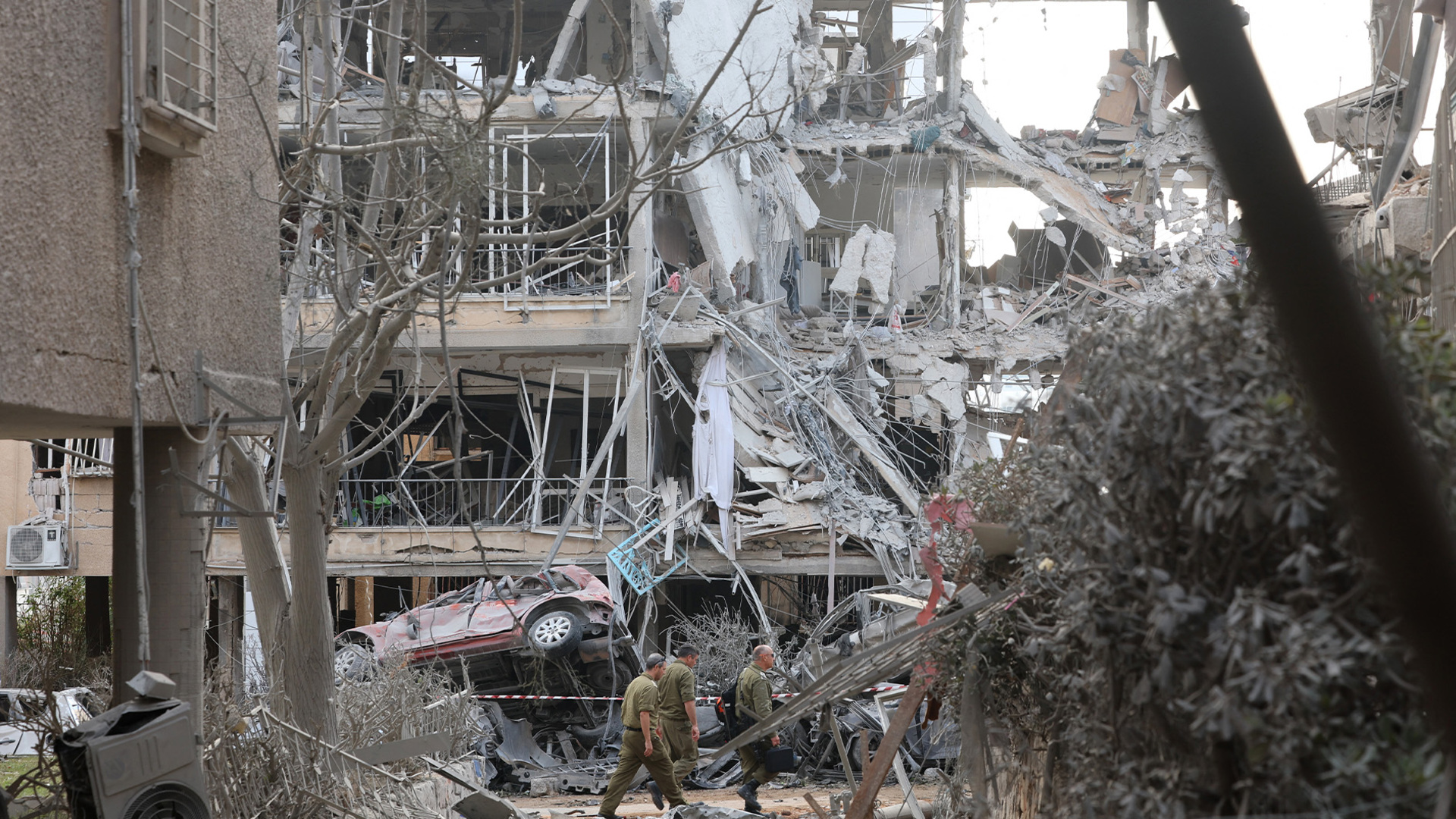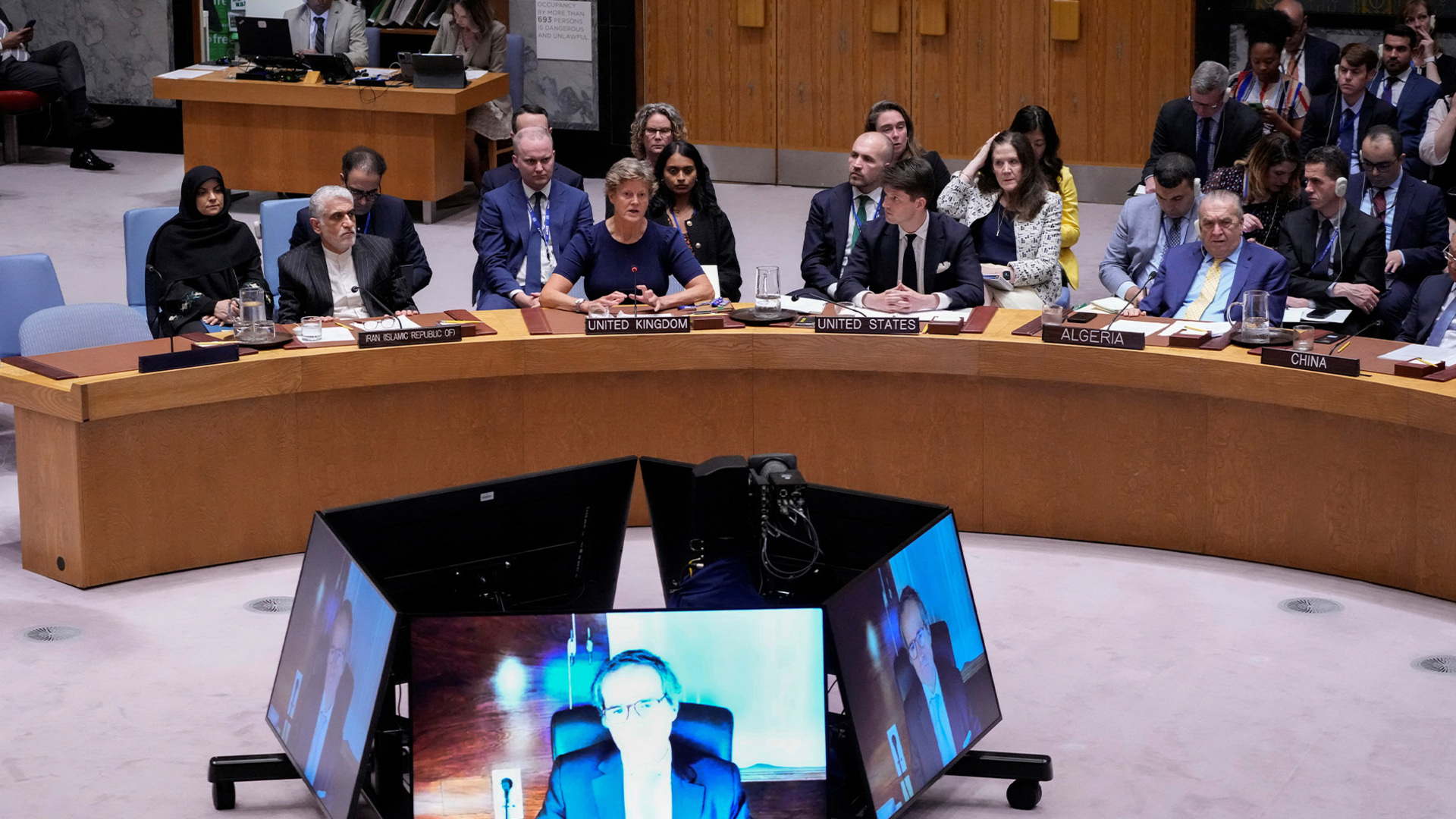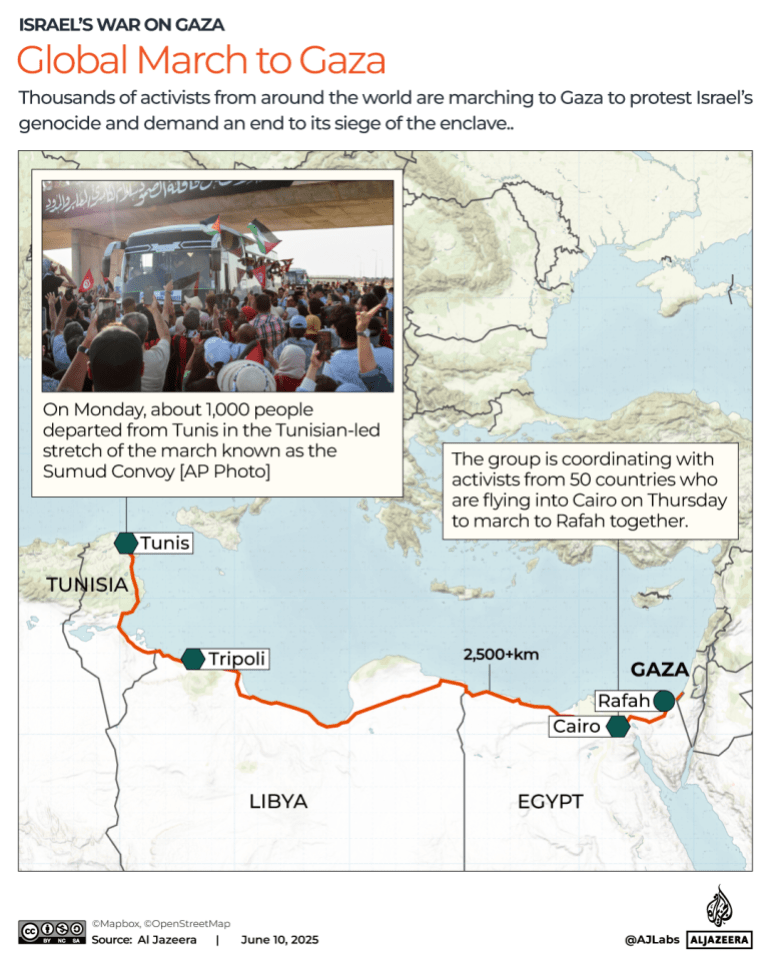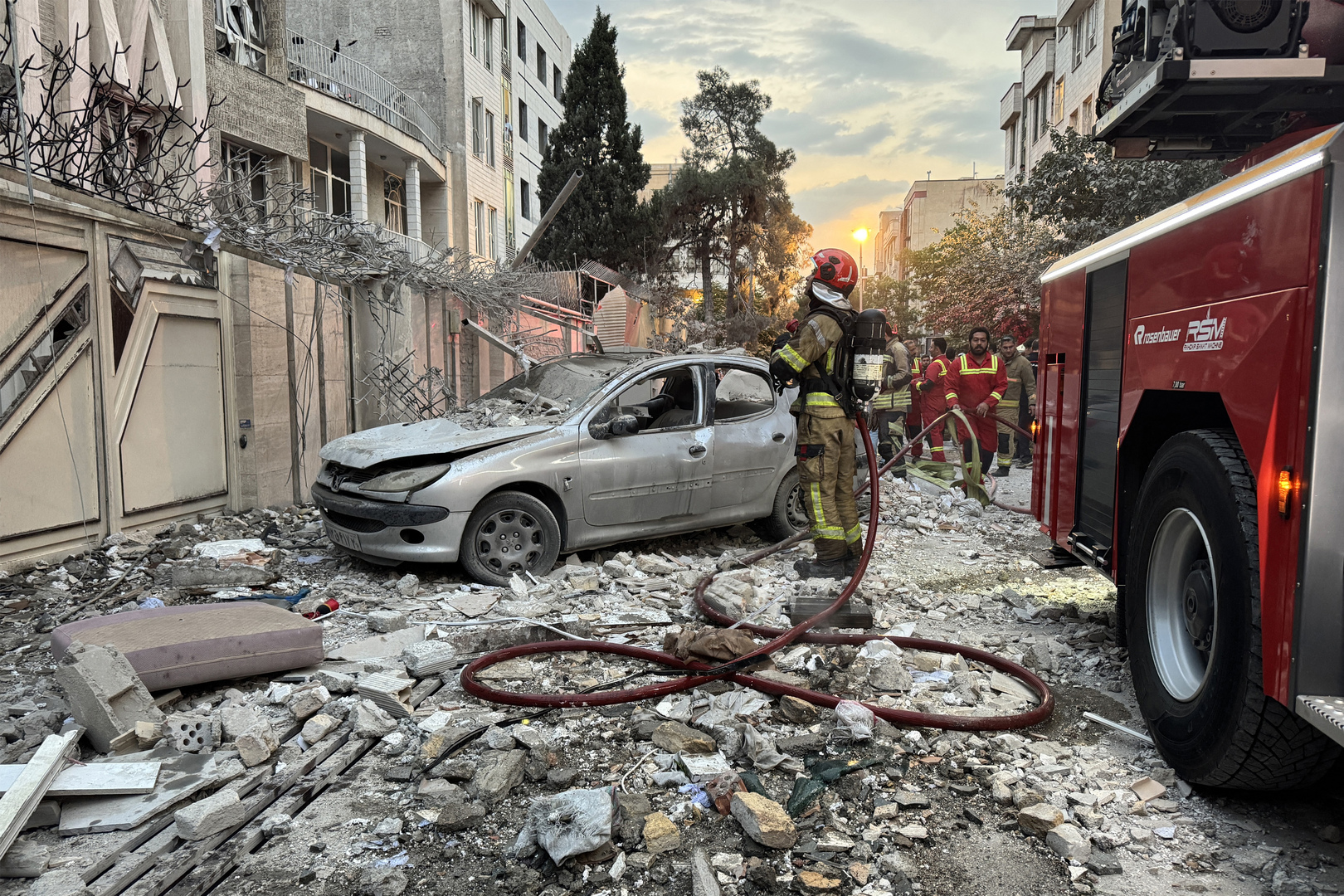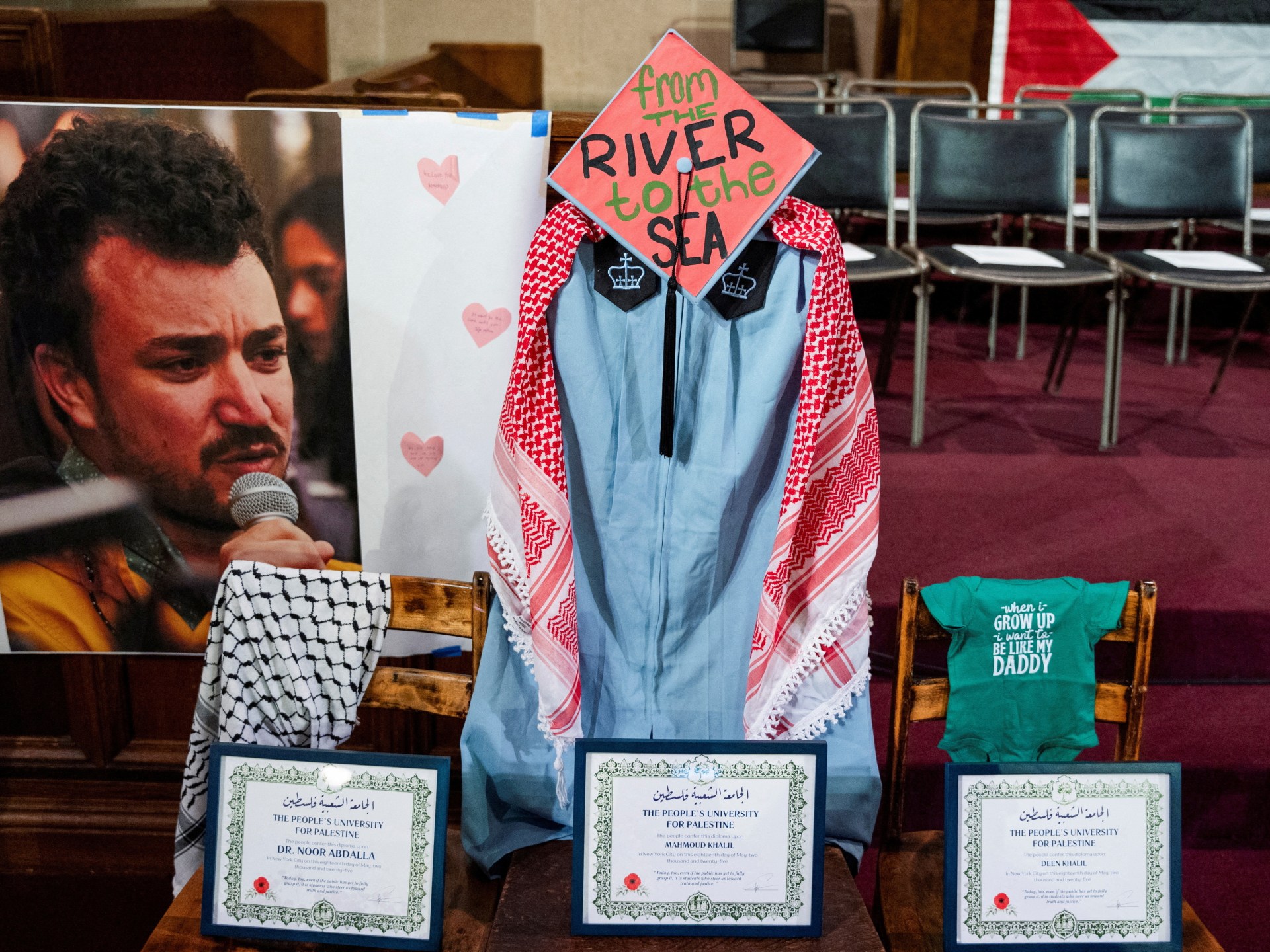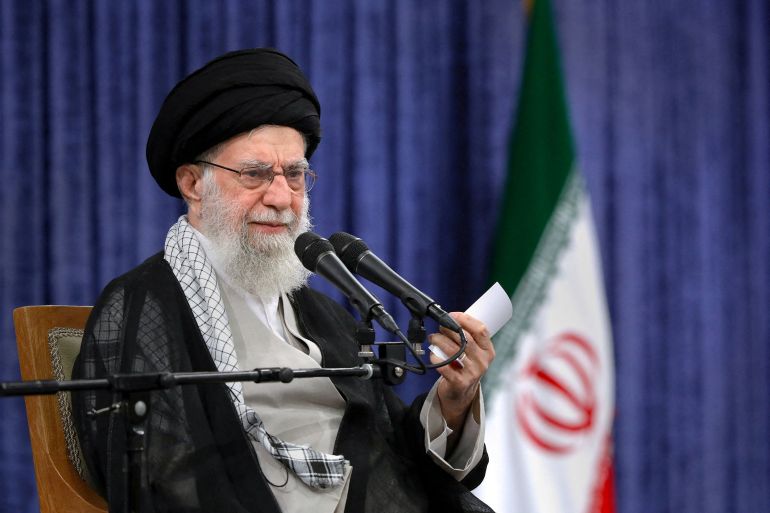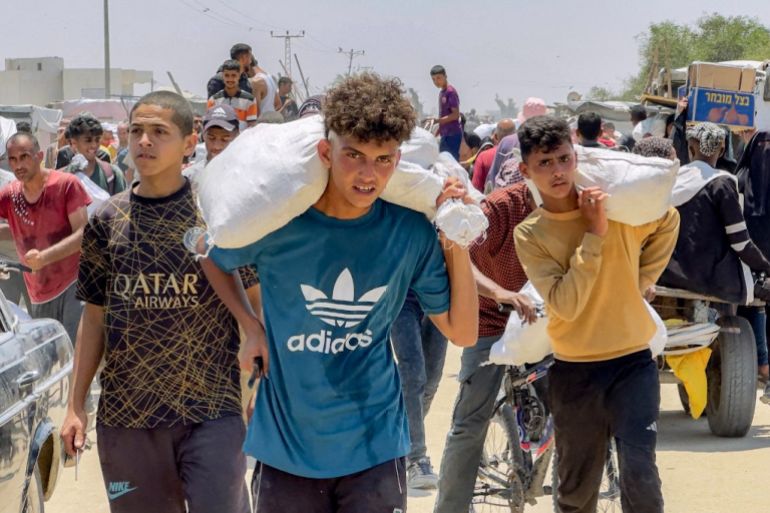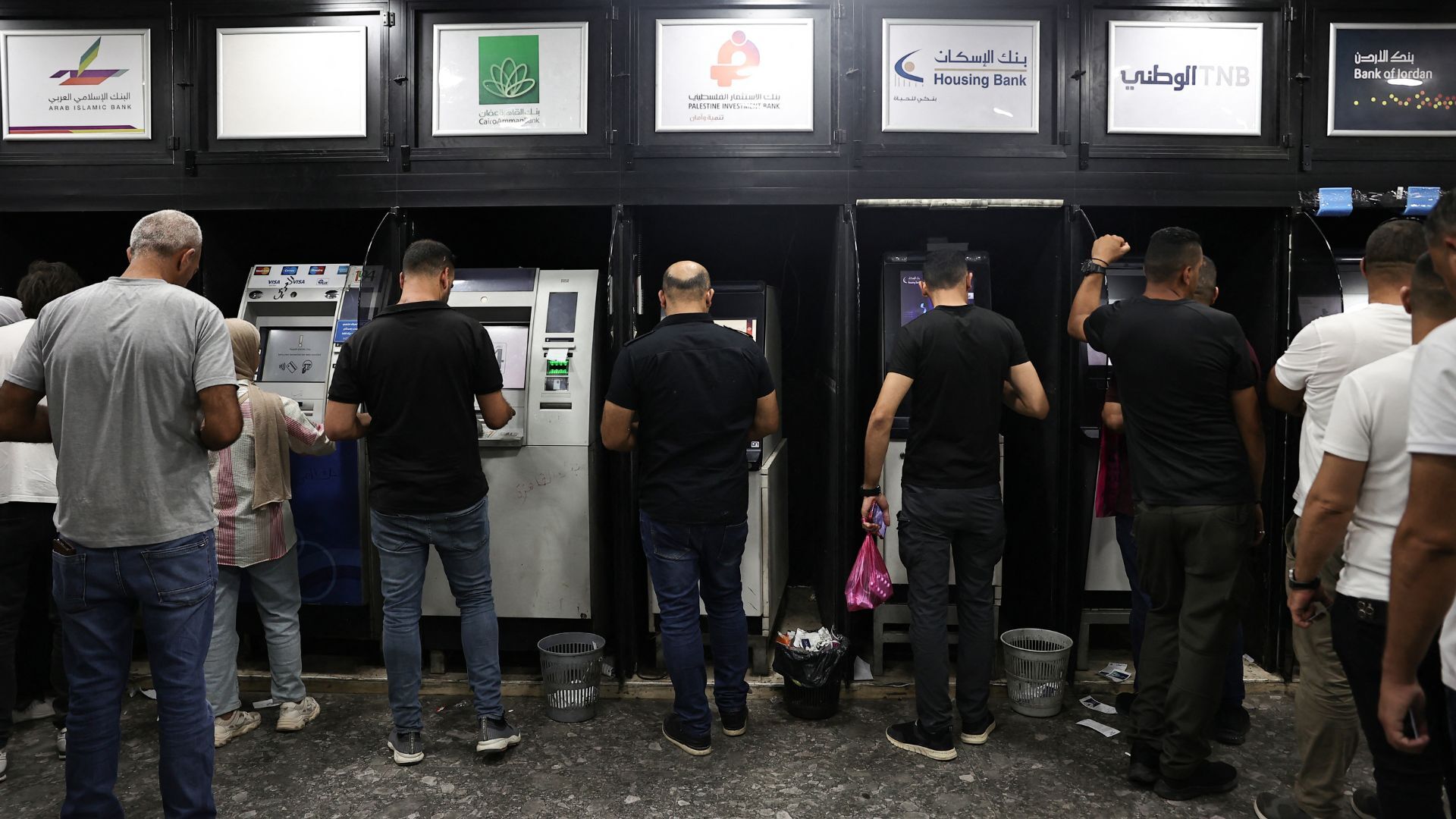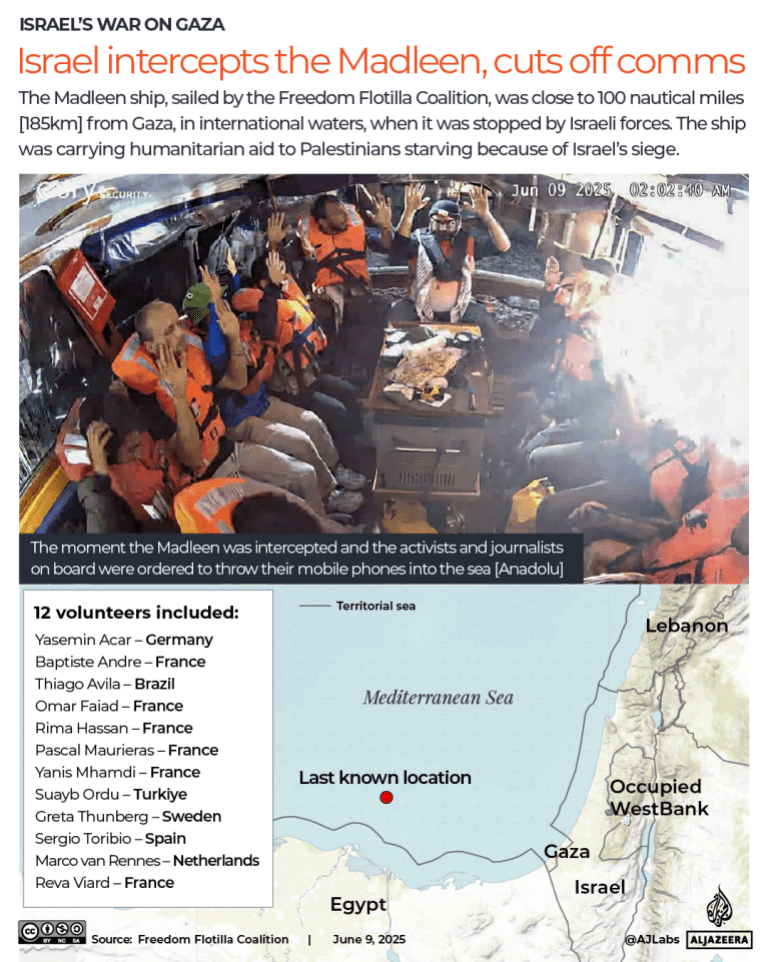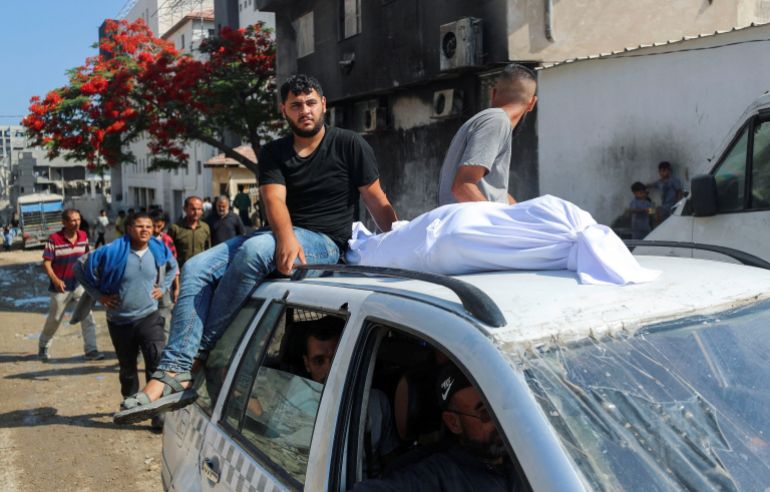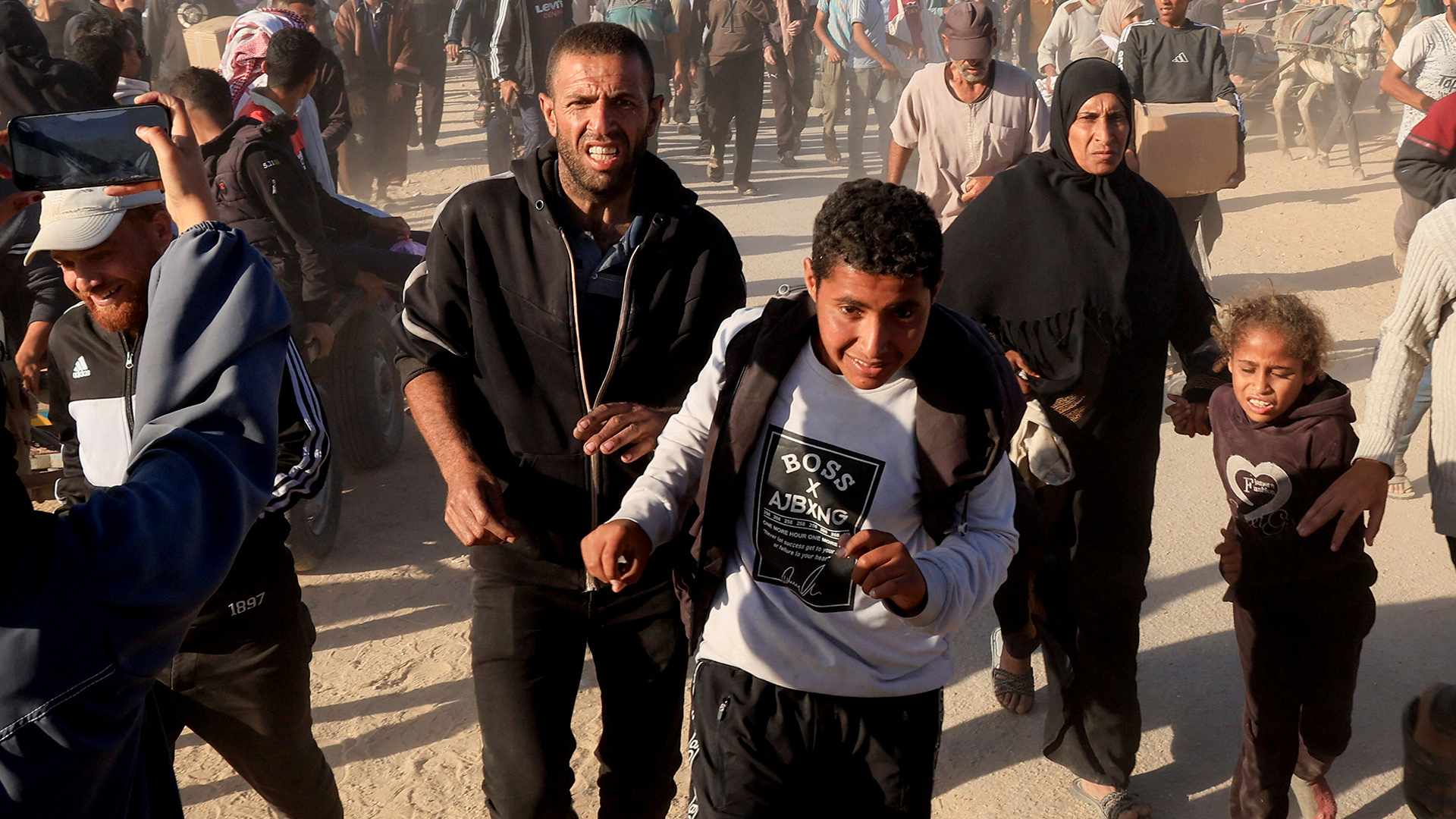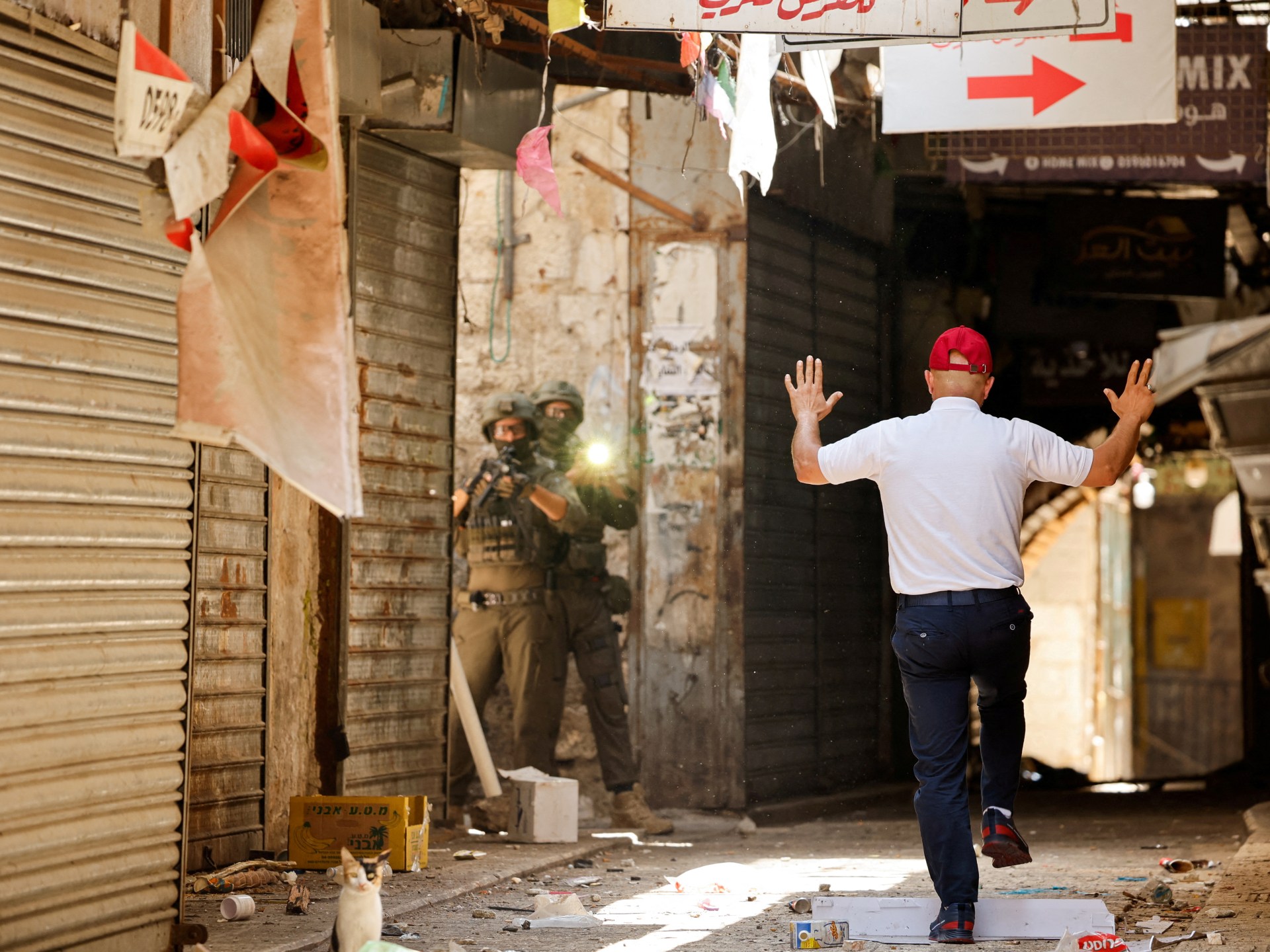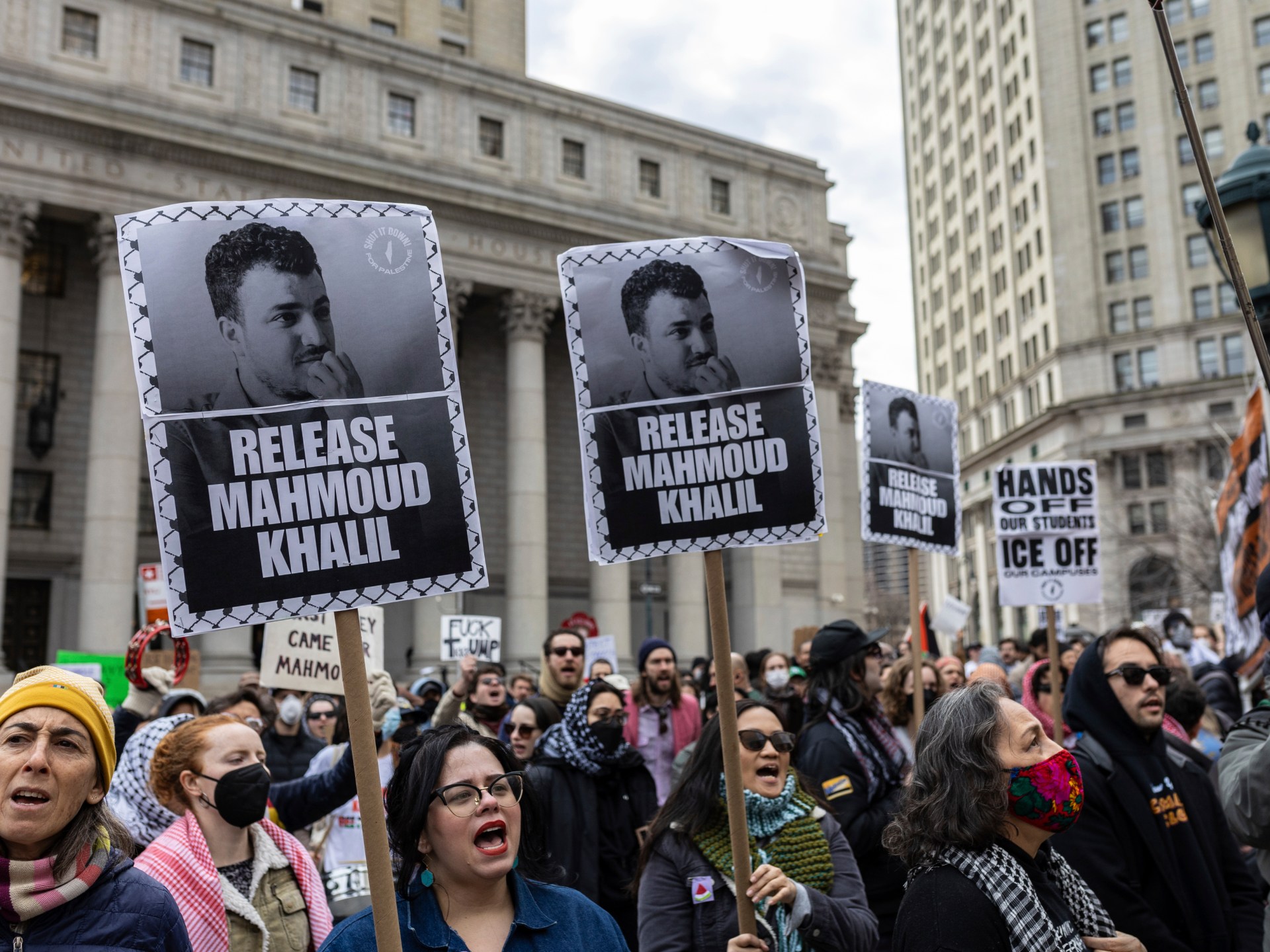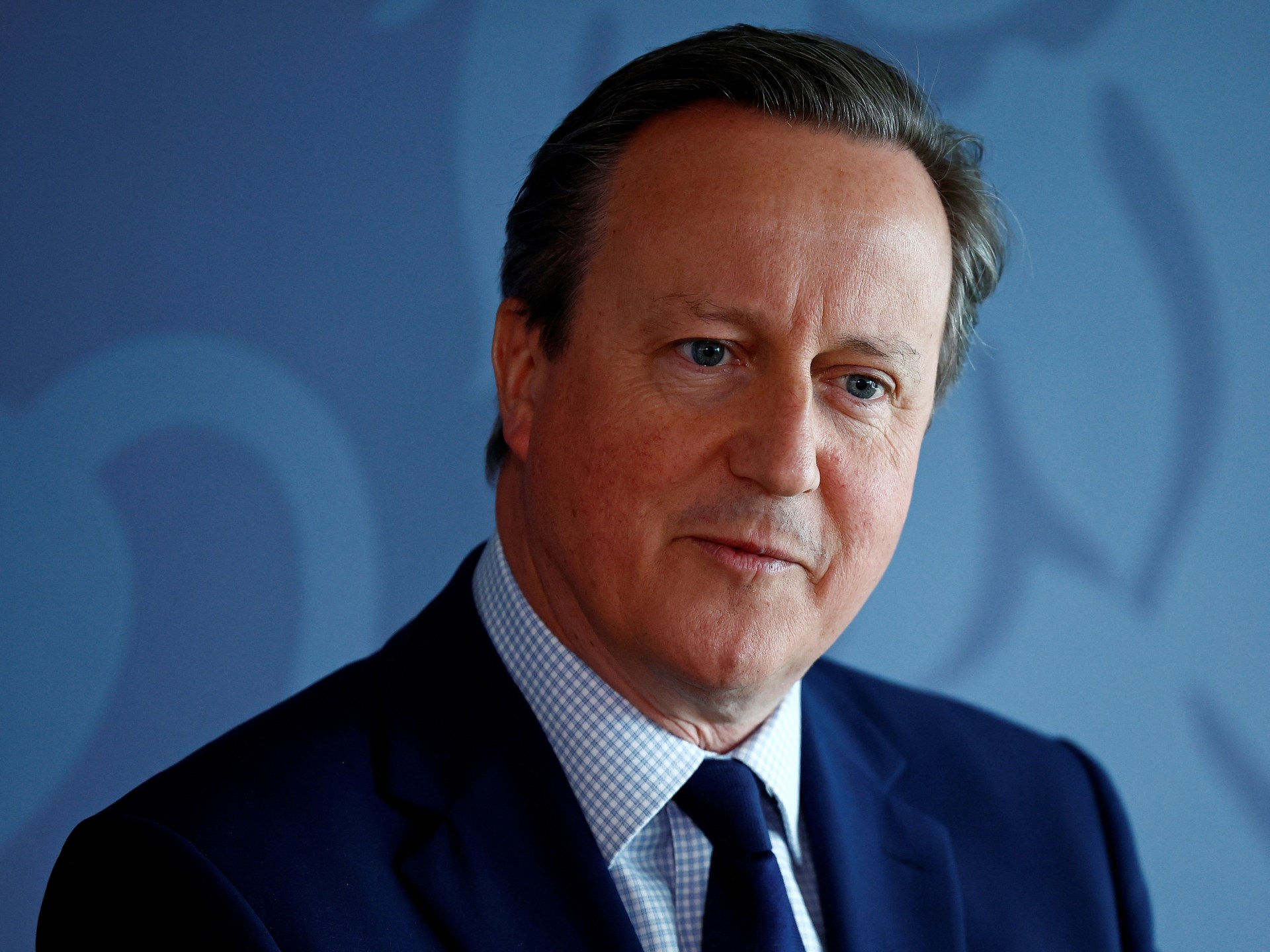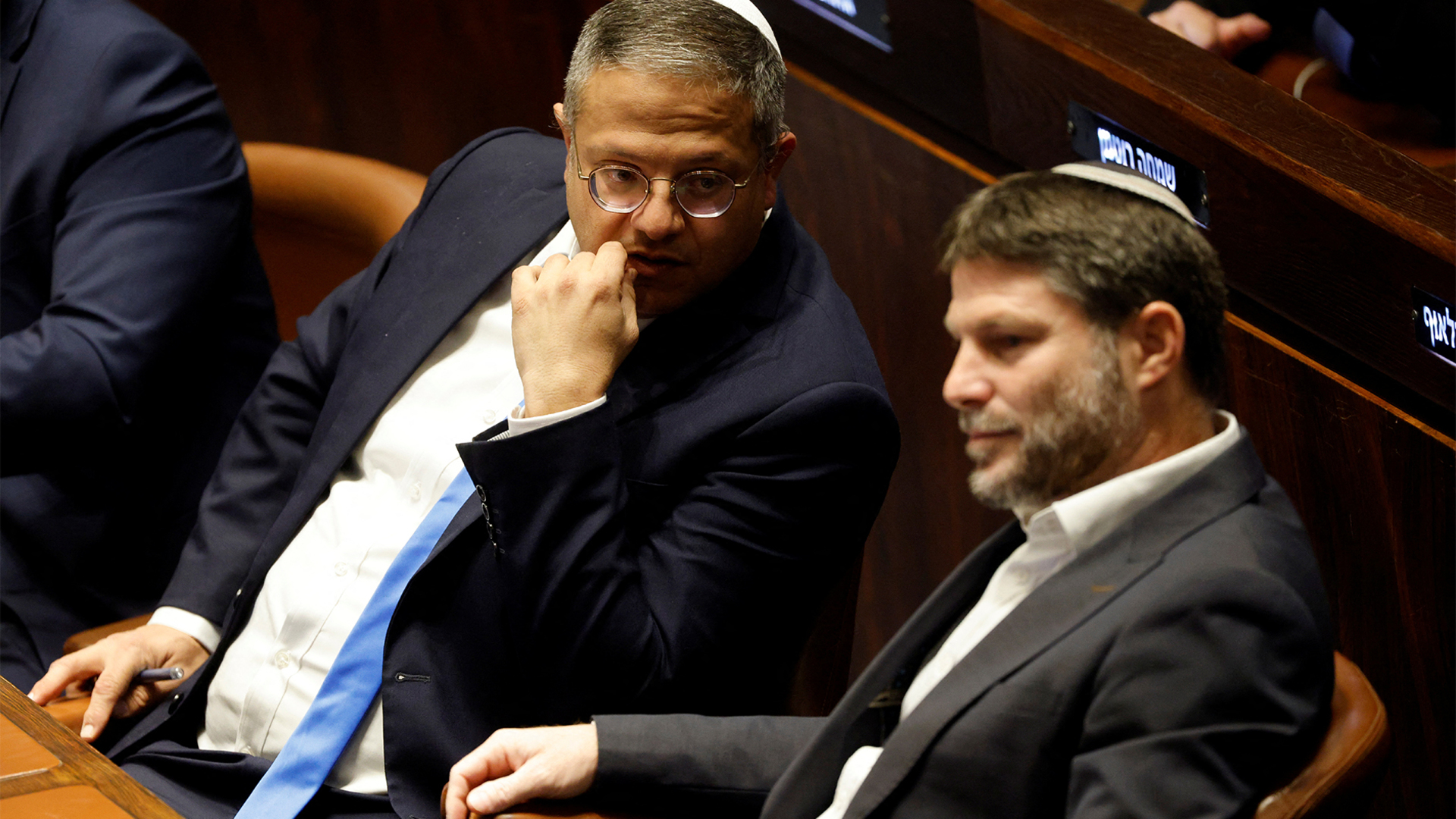A Palestinian man in a red cap walks down the narrow alleyway in Nablus’s old city towards a group of Israeli soldiers, clearly unarmed.
He attempts to talk to the soldiers, who had flooded into the occupied West Bank city in the early hours of Tuesday as part of Israel’s latest military raid – believed to be the largest carried out in Nablus in two years.
The soldiers immediately kick and shove the man – 40-year-old Nidal Umairah – before his brother walks over, attempting to intervene. Gunfire follows, and soon the two brothers are lying dead.
Nidal and his brother 35-year-old brother Khaled were the latest victims of Israel in the West Bank, after they were killed late on Tuesday. It is unclear which brother had initially been detained, but witnesses were adamant that the behaviour of the Israeli soldiers was an unnecessary escalation that led to the deaths of yet more Palestinians.
Ghassan Hamdan, the director of the Palestinian Medical Relief Society in Nablus, was at the scene of the killings.
“There were at least 12 soldiers and they all fired their automatic machine guns at once,” said Hamdan.
After the two men fell to the ground [medics] asked the soldiers if we could treat their wounds. They answered by firing at all of us.”
“We all took cover behind the walls of the old city,” he told Al Jazeera.
Hamza Abu Hajar, a paramedic at the scene, said that the Umairah brother who had initially approached the Israeli soldiers had been trying to go to his house to move his family out and away from the Israeli raid.
“They lifted his shirt up to prove he was unarmed,” Abu Hajar said. “They then started shooting at him, and at us as well.”
The Israeli army said it acted in self-defence after one of the Umairah brothers tried to seize a weapon from a soldier. It said that four soldiers had been injured in the incident.
West Bank raids
The raid in Nablus, which lasted more than 24 hours, is the latest Israel has conducted in the West Bank.
Israel has taken advantage of the world’s focus on its own war on Gaza since October 2023 to escalate its land theft and violence in the West Bank.
During that span, Israel has killed at least 930 people in the West Bank, 24 of whom were from Nablus, according to the United Nations Office for the Coordination of Humanitarian Affairs (OCHA).
Many of these deaths are the result of violent Israeli raids ostensibly aimed at clamping down on Palestinian fighters in the West Bank, but which have resulted in mass destruction and thousands of Palestinians fleeing their homes.
According to Hamdan, Israeli troops mainly targeted Nablus’s old city by storming into hundreds of homes in the middle of the night. Dozens of people were also reportedly arrested.
Young people in the city protested by burning tyres and throwing rocks at Israeli troops, yet they were met with heavy tear gas, injuring at least 80 Palestinians in the raid.
In the past, Palestinian protesters have been imprisoned on “terrorism” charges or shot and killed for simply resisting Israel’s occupation by throwing rocks or defying Israeli soldiers.
This time around, the Israelis classified the entire old city in Nablus as a closed military zone for 24 hours. No ambulances or medics were allowed inside to aid distressed residents, said Hamdan.
“Nobody was allowed in or out. Nobody was allowed to make any movement at all. We [as medics] could not enter the area during the entire raid to try and help people in need,” he told Al Jazeera.
Assault and vandalism
During the raid, Israeli troops stormed into several apartments after blowing off door hinges with explosives.
Umm Hassan, a 58-year-old resident who did not want to give her full name, recalls feeling terrified when several Israeli soldiers broke into her home.
About five months ago, her husband passed away from cancer, an illness that also claimed two of her children years ago.
Umm Hassan is also battling cancer, yet she said Israeli soldiers showed her no mercy. They flipped her television on the ground, broke windows and tossed her paintings off the walls and onto the living room floor.
They even vandalised her books by throwing them on the ground, including the Quran.
“I told them to leave me alone. I was alone and so scared. There was nobody to protect me,” Umm Hassan told Al Jazeera.
Another woman, Rola, said that Israeli soldiers stormed into her home two times in the span of six hours during the raid.
When Israeli soldiers returned the second time, Rola said that they attacked her elderly father, hitting him on the head and chest with the butts of their guns.
Rola described her three nieces and nephews – all small children – cowering with fear as Israeli soldiers vandalised and destroyed their home.
“The second time they came to our home, they put us all in a room and we weren’t able to leave the room from 8am until 3:30pm,” said Rola.
“We [Palestinians] always talk about being resilient. But the reality is when Israeli soldiers come into your private home, then you get very scared. It’s natural. We are humans and humans get scared,” she told Al Jazeera.
Psychological warfare
More than 80 Palestinians received treatment from the Palestine Red Crescent Society during the raid, 25 of them as a result of gunshot wounds.
While Israel says its raid was “precise”, inhabitants of Nablus say that the attack on the city was the latest attempt to intimidate and frighten Palestinians.
“Honestly, what were Israeli soldiers searching for in my home? What did they think they were going to find?” asked Rola. “The reason for their raids [violence] is to uphold the [illegal] occupation.”

